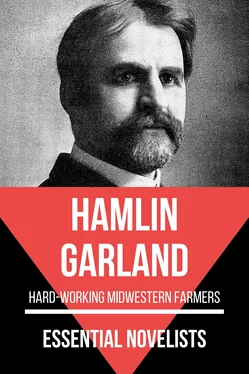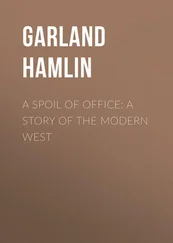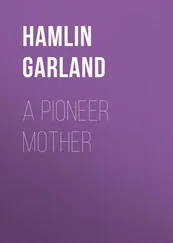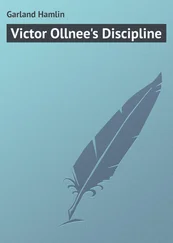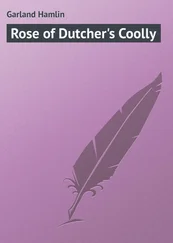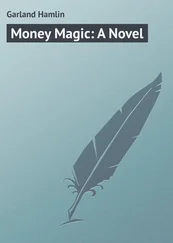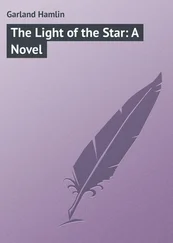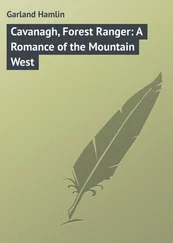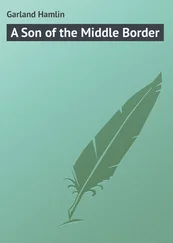How primitive all our notions were! Few of the boys owned overcoats and the same suit served each of us for summer and winter alike. In lieu of ulsters most of us wore long, gay-colored woolen scarfs wound about our heads and necks—scarfs which our mothers, sisters or sweethearts had knitted for us. Our footwear continued to be boots of the tall cavalry model with pointed toes and high heels. Our collars were either home-made ginghams or "boughten" ones of paper at fifteen cents per box. Some men went so far as to wear "dickies," that is to say, false shirt fronts made of paper, but this was considered a silly cheat. No one in our neighborhood ever saw a tailor-made suit, and nothing that we wore fitted,—our clothes merely enclosed us.
Harriet, like the other women, made her own dresses, assisted by my mother, and her best gowns in summer were white muslin tied at the waist with ribbons. All the girls dressed in this simple fashion, but as I write, recalling the glowing cheeks and shining eyes of Hattie and Agnes and Bess, I feel again the thrill of admiration which ran through my blood as they came down the aisle at church, or when at dancing parties they balanced or "sashayed" in Honest John or Money Musk .—To me they were perfectly clothed and divinely fair.
The contrast between the McClintocks, my hunter uncles, and Addison Garland, my father's brother who came to visit us at about this time was strikingly significant even to me. Tall, thoughtful, humorous and of frail and bloodless body, "A. Garland" as he signed himself, was of the Yankee merchant type. A general store in Wisconsin was slowly making him a citizen of substance and his quiet comment brought to me an entirely new conception of the middle west and its future. He was a philosopher. He peered into the years that were to come and paid little heed to the passing glories of the plain. He predicted astounding inventions and great cities, and advised my father to go into dairying and diversified crops. "This is a natural butter country," said he.
He was an invalid, and it was through him that we first learned of graham flour. During his stay (and for some time after) we suffered an infliction of sticky "gems" and dark soggy bread. We all resented this displacement of our usual salt-rising loaf and delicious saleratus biscuits but we ate the hot gems, liberally splashed with butter, just as we would have eaten dog-biscuit or hardtack had it been put before us.
One of the sayings of my uncle will fix his character in the mind of the reader. One day, apropos of some public event which displeased him, he said, "Men can be infinitely more foolish in their collective capacity than on their own individual account." His quiet utterance of these words and especially the phrase "collective capacity" made a deep impression on me. The underlying truth of the saying came to me only later in my life.
He was full of " citrus-belt " enthusiasm and told us that he was about to sell out and move to Santa Barbara. He did not urge my father to accompany him, and if he had, it would have made no difference. A winterless climate and the raising of fruit did not appeal to my Commander. He loved the prairie and the raising of wheat and cattle, and gave little heed to anything else, but to me Addison's talk of "the citrus belt" had the value of a romance, and the occasional Spanish phrases which he used afforded me an indefinable delight. It was unthinkable that I should ever see an arroyo but I permitted myself to dream of it while he talked.
I think he must have encouraged my sister in her growing desire for an education, for in the autumn after his visit she entered the Cedar Valley Seminary at Osage and her going produced in me a desire to accompany her. I said nothing of it at the time, for my father gave but reluctant consent to Harriet's plan. A district school education seemed to him ample for any farmer's needs.
Many of our social affairs were now connected with "the Grange." During these years on the new farm while we were busied with breaking and fencing and raising wheat, there had been growing up among the farmers of the west a social organization officially known as The Patrons of Husbandry. The places of meeting were called "Granges" and very naturally the members were at once called "Grangers."
My father was an early and enthusiastic member of the order, and during the early seventies its meetings became very important dates on our calendar. In winter "oyster suppers," with debates, songs and essays, drew us all to the Burr Oak Grove school-house, and each spring, on the twelfth of June, the Grange Picnic was a grand "turn-out." It was almost as well attended as the circus.
We all looked forward to it for weeks and every young man who owned a top-buggy got it out and washed and polished it for the use of his best girl, and those who were not so fortunate as to own "a rig" paid high tribute to the livery stable of the nearest town. Others, less able or less extravagant, doubled teams with a comrade and built a "bowery wagon" out of a wagon-box, and with hampers heaped with food rode away in state, drawn by a four or six-horse team. It seemed a splendid and daring thing to do, and some day I hoped to drive a six-horse bowery wagon myself.
The central place of meeting was usually in some grove along the Big Cedar to the west and south of us, and early on the appointed day the various lodges of our region came together one by one at convenient places, each one moving in procession and led by great banners on which the women had blazoned the motto of their home lodge. Some of the columns had bands and came preceded by far faint strains of music, with marshals in red sashes galloping to and fro in fine assumption of military command.
It was grand, it was inspiring—to us, to see those long lines of carriages winding down the lanes, joining one to another at the cross roads till at last all the granges from the northern end of the county were united in one mighty column advancing on the picnic ground, where orators awaited our approach with calm dignity and high resolve. Nothing more picturesque, more delightful, more helpful has ever risen out of American rural life. Each of these assemblies was a most grateful relief from the sordid loneliness of the farm.
Our winter amusements were also in process of change. We held no more singing schools—the "Lyceum" had taken its place. Revival meetings were given up, although few of the church folk classed them among the amusements. The County Fair on the contrary was becoming each year more important as farming diversified. It was even more glorious than the Grange Picnic, was indeed second only to the fourth of July, and we looked forward to it all through the autumn.
It came late in September and always lasted three days. We all went on the second day, (which was considered the best day) and mother, by cooking all the afternoon before our outing, provided us a dinner of cold chicken and cake and pie which we ate while sitting on the grass beside our wagon just off the racetrack while the horses munched hay and oats from the box. All around us other families were grouped, picnicking in the same fashion, and a cordial interchange of jellies and pies made the meal a delightful function. However, we boys never lingered over it,—we were afraid of missing something of the program.
Our interest in the races was especially keen, for one of the citizens of our town owned a fine little trotting horse called "Huckleberry" whose honest friendly striving made him a general favorite. Our survey of fat sheep, broad-backed bulls and shining colts was a duty, but to cheer Huckleberry at the home stretch was a privilege.
To us from the farm the crowds were the most absorbing show of all. We met our chums and their sisters with a curious sense of strangeness, of discovery. Our playmates seemed alien somehow—especially the girls in their best dresses walking about two and two, impersonal and haughty of glance.
Читать дальше
